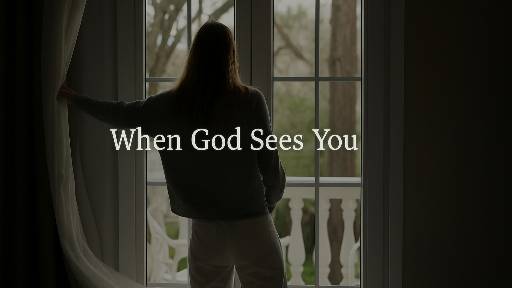-
Though My Father And Mother Forsake Me
Contributed by Davon Huss on Nov 28, 2017 (message contributor)
Summary: A sermon that introduces attachment theory. So What question: How do we know that God cares? (Material adapted from Dr. Tim Clinton and Dr. Joshua Straub's book, God Attachment, chapters 4 through 6)
HoHum:
The Native Americans had a particular way of training young boys to become Indian braves. On the night of a boy’s thirteenth birthday, after learning hunting, scouting, and fishing skills, he was put to one final test. He was placed in a thick forest to spend the entire night alone. Until then, he had never been away from his family and the tribe. But on this night, he was blindfolded and taken several miles away. When he took off the blindfold, he was in the middle of a thick woods and he was scared to death! Every time a twig snapped, he would think that a wild animal was getting ready to pounce. After what seemed like forever, and the sun began to rise the next morning, The boy looked around and then, to his complete amazement, he saw the figure of a man standing just a few feet away, armed with a bow and arrow. It was his father.
And he had been there all night long.
WBTU:
Been alluding to attachment theory in series called God attachment. Let’s give some details...
One of the most basic human needs is to have a secure emotional connection- an attachment-
with those who are closest to us. It is this inborn need, and the fears of loss and isolation that accompany this need, that play a significant role in our lives. Even though this is popular in counseling circles today, in many ways attachment theory is countercultural. Our society likes to emphasize self sufficiency and individualism. These cultural standards are destroying marriages and families. Therefore, in reaction to this many are emphasizing attachment theory.
It used to be that counselors would emphasize the problems with co dependency. Today many are saying that it is against human nature to be completely independent. Now, there is healthy dependence and unhealthy dependence, but to say that the ideal human being is completely independent is a destructive idea to marriage and family.
It starts when we are kids. Studies tells us that when a child is near a loved one their nervous system is soothed. Being near a loved one is a natural antidote to feelings of anxiety or vulnerability. Positive attachments create a safe base that offers a buffer against the effects of stress and uncertainty. Healthy attachment provides a secure base from which a person can explore their world and adequately respond to their environment. Loving attachment provides the confidence necessary to risk, learn, and develop a personality. When relationships offer a sense of security, individuals are better able to reach out and provide support for others and deal with conflict and stress positively.
The building blocks of healthy attachments are emotional accessibility and responsiveness. Emotions are central to attachment. With this idea we can begin to understand some of the extreme emotional responses in marriages and families. Attachment relationships are where our strongest emotions arise and where they have the strongest affect whether for the good or bad. Emotions tell us and communicate to others what our motivations and needs are.
When an individual is threatened, attachment needs make themselves known. A sense of connection with a loved one is what we need the most when times are hard. Attachment is our primary protection against feelings of helplessness and meaninglessness (biblical word).
If our attachment needs are ignored by significant others in our lives, then we protest against them in a number of ways. If our protests are continually ignored, then depression and despair may take over. If needs are left unattended, the relationship will dissolve and the individual will seek out a more secure base. In secure relationships, the needs must be addressed because this is causing anxiety and continual upset.
Attachment issues are based on this question, “Can I depend upon you when I need you?”
When emotional needs are unresolved, there are two basic ways that people cope. One is anxiety where the attachments needs go into overdrive. This person pursues the one with which they need attachment and aggressively try to connect with their loved one. The second way is avoidance. This person denies that they have needs. They need to grow up and ignore emotions. They need to just “put up and shut up.” These two basic strategies, anxious pursuing or detached avoidance, can develop into habitual ways to deal with significant others. We often see this in a marital relationship. The wife is the one who anxiously pursues, goes into overdrive, to see that her needs are met. The husband feels like she is nagging him, and so he begins to practice avoidance. In essence he denies his feelings and believes he can go it alone.
Many say that attachment trauma begins in childhood. When we experience the trauma of deprivation, loss, rejection, and abandonment by our parents, this has an enormous affect upon all of us. We all experience this in some form or another. How we deal with that has a lasting impact upon all of our significant relationships in our future. Our parents fail us. Sure, some parents do a better job than others, but in some way all of our parents fail to meet our attachment needs. My mother is here so have to give this disclaimer. Also, my children will probably be in some counselors office someday and talk about what a bad parent I was.

 Sermon Central
Sermon Central


